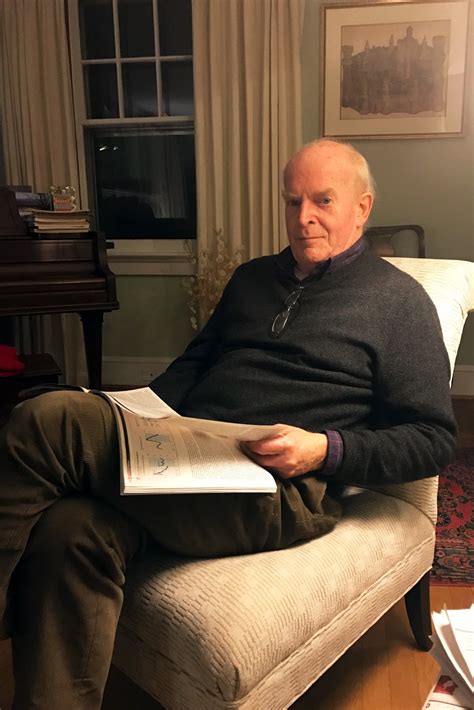A Quote by Ken Robinson
The arts especially address the idea of aesthetic experience. An aesthetic experience is one in which your senses are operating at their peak; when you’re present in the current moment; when you’re resonating with the excitement of this thing that you’re experiencing; when you are fully alive.
Related Quotes
That's what I like about the idea of the aesthetic experience, the idea of both enjoying looking at works of art and how they kind of talk to you, and also the process of making art, getting back to that idea of the aesthetic experience of making art is very important, It's another way of thinking. Instead of just using your brain, you're using your hands to think with. They're different connections, the brain that comes through the fingertips as opposed that comes through the eyes and ears.
Public taste changes and the aesthetic of a culture changes over time, so the idea isn't to appeal to the aesthetic of the moment and what people will like right now; the idea is to somehow keep yourself in the public memory so that as taste evolves it will eventually come to embrace your thing. So, it's about writing to be remembered rather than writing to be liked.
I think that is what you want to do as a cinemagoer - to experience something fully. Some things don't let you experience them fully. It may be your own preordained prejudice where you can't experience them fully. But when you come out of the cinema having felt, thought, and experienced your way through two hours, that is a really cool thing.
Completely desist from defending your point of view. When you have no point to defend, you do not allow the birth of an argument. If you do this consistently - if you stop fighting and resisting - you will fully experience the present, which is a gift. Someone once told me, "The past is history, the future is a mystery, and this moment is a gift. That is why this moment is called 'the present'."
Millions of items in the outward order are present to my senses which never properly enter into my experience. Why? Because they have no interest for me. My experience is what I agree to attend to. Only those items which I notice shape my mind --without selective interest, experience is an utter chaos.
Originality is another criterion of aesthetic value. We may formulate an originality principle, according to which highly valuable works of art provide hitherto unavailable insights.... Notice that, although originality is a necessary condition of high aesthetic value, it is far from a sufficient condition. Many original works have little or no aesthetic value. An artwork may present a novel but uninteresting perspective, or one that is original but wrong.
An old essay by John Updike begins, 'We live in an era of gratuitous inventions and negative improvements.' That language is general and abstract, near the top of the ladder. It provokes our thinking, but what concrete evidence leads Updike to his conclusion ? The answer is in his second sentence : 'Consider the beer can.' To be even more specific, Updike was complaining that the invention of the pop-top ruined the aesthetic experience of drinking beer. 'Pop-top' and 'beer' are at the bottom of the ladder, 'aesthetic experience' at the top.
That authentic experience that happens both in the artist and in the audience you can classify as a mystical experience. You can classify it as aesthetic shock, or even a psychedelic experience. Some people seek to recreate that experience through drugs. But the other way that you can do it is through art, and through spectacle. We have those experiences when we go to rock shows, or when we listen to a piece of classical music, or read a particular poem, or see a painting.




































